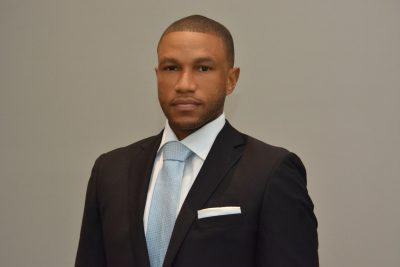Students exit the Lied Library at UNLV in Las Vegas Thursday, Sept. 16, 2021. (Rachel Aston/Las Vegas Review-Journal) @rookie__rae
Nevada’s higher education system on Thursday approved a policy requiring COVID-19 vaccinations for employees.
After more than two hours of public comment, the Nevada System of Higher Education’s Board of Regents voted 10-3 to approve the policy. Regents Patrick Boylan, Byron Brooks and Lois Tarkanian, all of whom represent districts in Clark County, voted “no.”
Employees must provide proof of COVID-19 vaccination on or before Dec. 1. New NSHE employees must be vaccinated before they start on the job. Medical and religious exemptions will be considered.
Failure of an employee to comply with the mandate “will result in termination from employment,” a board briefing paper stated.
The step comes after regents voted unanimously Sept. 10 to authorize NSHE Chancellor Melody Rose’s office to draft policies and procedures to implement a mandate.
There were significantly more public comments at Thursday’s meeting than at the previous session. Opinions were mixed, but most commenters opposed a mandate.
NSHE employees are already under a state requirement to either be fully vaccinated or undergo weekly testing.
No ‘significant employee loss’ expected
Currently, 77.2 percent of the system’s employees are vaccinated against COVID-19, according to a briefing paper, but Rose said that rate has since climbed to around 80 percent. That leaves approximately 5,000 employees who aren’t vaccinated.
“I think as a general matter, we’re moving in the right direction and we do not anticipate any sort of significant employee loss,” Rose said.
Employees who work entirely remotely or via telecommuting aren’t subject to the policy, but will be barred from any NSHE property without first providing proof of vaccination.
The decision by regents comes after the State Board of Health voted in August to require all public college and university students to be fully vaccinated in order to enroll for the spring 2022 semester. Medical and religious exemptions also are allowed.
“It’s important to note that the student mandate isn’t under our control,” Regent Jason Geddes said, adding that it’s appropriate for employees who will be around those students to fall under the same requirements.
Over six days in September, NSHE held five stakeholder roundtable meetings to gather input on the policy and about 338 people participated. The policy was updated as a result.
The emergency code provisions will be effective for 120 days and would have to return to the board if they’re considered for permanent enactment, said Chief General Counsel Joe Reynolds said. The provisions have a limited purpose and scope, and are solely intended to address the COVID-19 vaccination issue and “no other issue,” he said.
The matter will also come back to the board before the start of the fall 2022 semester.
NSHE isn’t the only educational institution in Nevada to mandate employee COVID-19 vaccination. The Clark County School Board voted 5-1 in early September to allow Superintendent Jesus Jara to draft and implement a policy and it would allow for medical and religious exemptions. The district is negotiating the policy with unions and has yet to present a draft to the board.
Under NSHE’s policy, employees — with the exception of classified staff — who haven’t provided a record of a completed COVID-19 vaccination by Oct. 15 will receive a “notice of noncompliance.”
Employees who continue to defy the edict will receive a “notice of warning” on or before Nov. 1 and a “notice of termination” on or before Dec. 1.
There will be an additional 30 days before notice of termination becomes effective Dec. 31, Reynolds said.
An employee can request reconsideration of a notice of termination based on a “mistake of fact,” he said.
Employees can also request a stay that’s effective the day of termination if they’ve received one shot in a two-part vaccination series to allow extra time to receive the second shot, Reynolds said.
Classified employees will also be subject to termination for noncompliance, but under a different set of procedures.
Employees may request a waiver “due to a diagnosis of a pre-existing and individual medical condition which presents a medical contraindication to the COVID-19 vaccination or if receiving a vaccine would violate a sincerely held religious belief,” the policy states.
A medical waiver must include certification by a licensed physician, nurse practitioner or physician assistant in good standing who practices in any U.S. state.
A waiver review committee with three to five members will be appointed by the president of each school, according to the policy. If a waiver request is denied, an employee has a right to appeal.
If an employee is granted a waiver, there may still be requirements to engage in mitigation measures such as wearing a mask and possibly undergo weekly or periodic COVID-19 testing.
Employees who are on already-approved continuous Family and Medical Leave Act (FMLA) leave, sabbatical or researching overseas don’t initially have to comply with Dec. 1 deadline, but must do so before they return to the workplace.
The policy will also require new contracts that are entered into to have a provision that requires employees of that contractor, subcontractor or event planner to be vaccinated.
The policy doesn’t apply to COVID-19 booster shots at this time, Reynolds said.
Opponents explain concerns
Of the regents who voted against the mandate, Boylan indicated he had a change of heart after initially favoring one.
Boylan, a 40-year Las Vegas resident, said he was opposed to the COVID-19 vaccine for many reasons, but got vaccinated because he didn’t think it would be right to impose a mandate on others if he hadn’t received the shots.
But he said that upon further reflection, he can’t be part of an unfunded mandate or something that will cause employees to lose their income.
What happened to freedom of choce in this country? Boylan asked, noting the mandate feels like coercion. He also said those who are undocumented and are entering the United States aren’t being forced to get vaccinated.
As for whether to get the COVID-19 vaccination, “I think adults should make those choices for themselves,” he said.
For the 80 percent of NSHE employees are vaccinated, “why are we worried about the 20 percent who are not vaccinated?” Boylan said.
He also questioned whether face masks work and said there are vaccinated people who have contracted the virus.
Board Chair Cathy McAdoo interjected during Boylan’s response and said she was hearing he wasn’t in support of the policy.
She said she appreciated his comments, but asked if he could begin to wrap up in order to give other regents the opportunity to speak.
Brooks said he also had raised concerns about a COVID-19 vaccination mandate during a State Board of Health meeting in August and noted that if he didn’t support such a policy for students, it wouldn’t make sense to support a mandate for employees.
Tarkanian said she was voting “no” after hearing arguments from her two fellow regents but did not elaborate.
Public comments
Of the members of the public who spoke, one who identified himself as a UNLV employee for almost 19 years, said he had a simple message for regents: “You all need to repent.”
He told regents they have believed a lie and are now propagating it. He alleged “experimental injections” are being called vaccines and aren’t safe.
By mandating vaccination, regents will be guilty of murder if any employees die and guilty of crimes against humanity no matter what.
Another UNLV employee said he previously had COVID-19 but was asymptomatic. He said approving a mandate would be taking away an employee’s right of medical choice.
Multiple people affiliated with Western Nevada College in Carson City signed a written public comment saying they understand the health and wellness of students and employees come first.
But they called on regents to support the current state policy, which requires workers to either be fully vaccinated or undergo mandatory weekly COVID-19 testing.
They also wrote they’re worried about the stability of the college operationally during spring semester and beyond, citing concerns about a sudden loss of staff.
Patty Charlton, vice president and provost for the College of Southern Nevada’s Henderson campus, and Chris Heavey, executive vice president and provost at UNLV, are both on NSHE’s COVID-19 task force. They urged regents to approve the mandate.
Charlton said the decision may be challenging, but the policy reflects input sessions that were held and “the review process has been extensive for the policy.”
She said the science is solid on the efficacy of the COVID vaccine and supporting the mandate is “the pathway to ending this public health crisis.”
Despite what others said, vaccines are extremely effective and our last remaining tool in the arsenal to help end the pandemic, Heavey added.
Kent Ervin, president of the Nevada Faculty Alliance, said the alliance issued a statement in July urging vaccination requirements for students and employees.
Contact Julie Wootton-Greener at jgreener@reviewjournal.com or 702-387-2921. Follow @julieswootton on Twitter.
This content was originally published here.












